The comprehensive guide to renting an apartment in Dubai
Renting an Apartment in Dubai is one of the main concerns for individuals planning to live, work, or invest in this vibrant city. As one of the most advanced cities in the Middle East and a hub for trade and tourism in the region, Dubai hosts thousands of expatriates and investors from around the world every year. Due to its rich cultural diversity, high quality of life, and modern infrastructure, the demand for rental properties in this city has always been high, making its rental market dynamic and diverse.
In Dubai, there is a wide variety of apartments available—from studio units to luxurious penthouses—spread across different neighborhoods and offering various amenities. Choosing a place to live depends on factors such as your budget, lifestyle, distance to work or school, and proximity to city services. Areas like Deira, Bur Dubai, Jumeirah Lake Towers (JLT), Dubai Marina, Downtown, and Business Bay each have their own unique features and price ranges that need to be carefully considered.
It is also important to understand the legal procedures involved in renting a property, including preparing the required documents, reviewing the rental agreement, initial payments such as security deposits, registering the contract with the Ejari system, and interacting with the landlord or real estate agency. Lack of knowledge about rental laws in Dubai can lead to legal or financial issues.
In this comprehensive guide, we aim to explain all the essential points and important steps for renting an apartment in Dubai in a simple and practical manner, so that you can confidently and comfortably choose a suitable place to live.
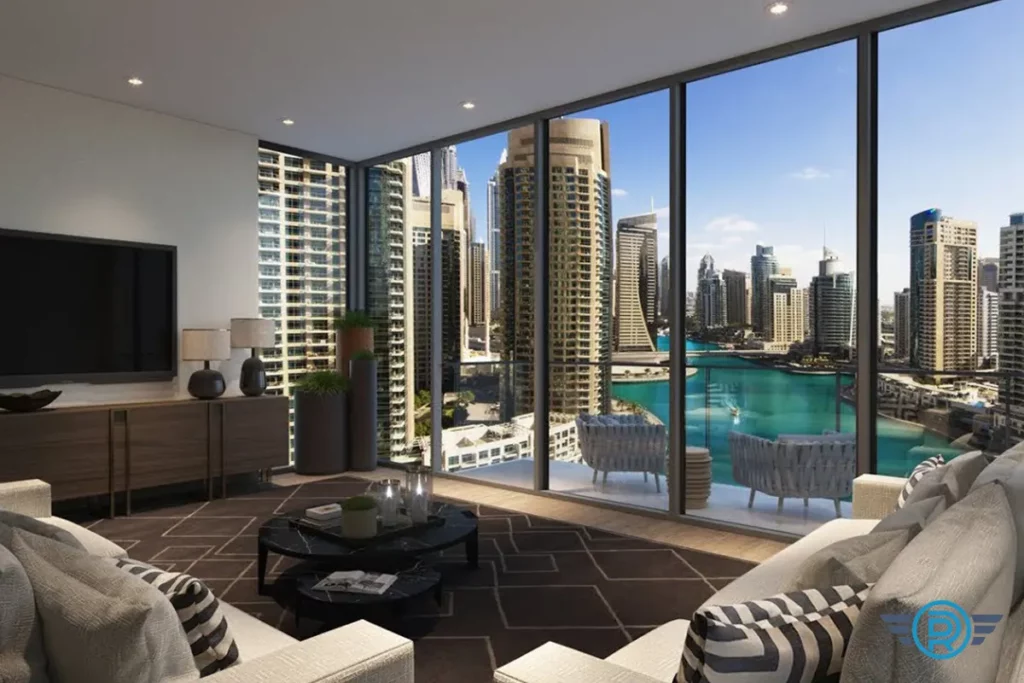
During business or leisure trips, comfort and convenience play a crucial role. Diar Rent offers a reliable and enjoyable car rental experience by providing a wide range of vehicles, including economy cars, luxury models, and SUVs.
Rules and conditions for renting a house in Dubai
Renting an apartment in Dubai is governed by specific rules and regulations that are designed to ensure the rights of both tenants and landlords. Below are some of the most important laws and conditions related to renting an apartment in Dubai:
1. Lease Agreement
- Duration of the Lease: Typically, lease contracts for apartments in Dubai are one year, though short-term contracts (such as 6 months) may also be arranged.
- Rent Amount: The rent amount should be specified in the lease agreement. In Dubai, some landlords collect rent on an annual basis, but monthly or quarterly payments may also be arranged.
2. Security Deposit
- Landlords typically request a security deposit in the form of a check, which is usually equivalent to one or two months’ rent. This deposit is returned to the tenant at the end of the lease, provided there is no damage to the property.
3. Payment Methods
- Rent is typically paid through monthly checks or quarterly payments. Some landlords may also allow tenants to pay rent via online methods or bank cards.
4. Tenant’s Rights
- Tenants in Dubai are entitled to have their rent increased only after the lease period ends, unless a new agreement is made between both parties.
- If rent is not paid on time, the landlord has the right to request eviction through the court.
5. Landlord’s Rights
- Landlords have the right to sell their property during the lease period, but they must ensure that the tenant is using the property properly and causing no damage.
- If the landlord intends to sell the property or live in it, they must inform the tenant 125 days before the lease expires.
6. Changes to the Lease Agreement
- If a tenant wishes to leave the apartment before the lease term ends, they must agree with the landlord, and typically they will have to pay a penalty fee for early termination.
7. Registration of the Lease with the Real Estate Regulatory Agency (Ejari)
- All rental contracts must be registered with the “Ejari” system, which serves as an official record and provides legal documentation for both tenants and landlords in case of disputes.
8. Additional Costs
- In addition to rent, tenants are responsible for paying utility bills such as electricity, water, internet, and other public services. Some buildings include these services in the rent, but in most cases, tenants are responsible for paying utility costs separately.
9. Maintenance and Repairs
- By law, landlords are responsible for major maintenance and repairs. However, tenants are generally responsible for minor repairs and maintenance within the apartment, such as fixing small issues that arise during their stay.
10. Contract Termination
- If either party (tenant or landlord) is unable to fulfill their obligations, the contract can be terminated. However, this termination typically involves a penalty or compensation fees.
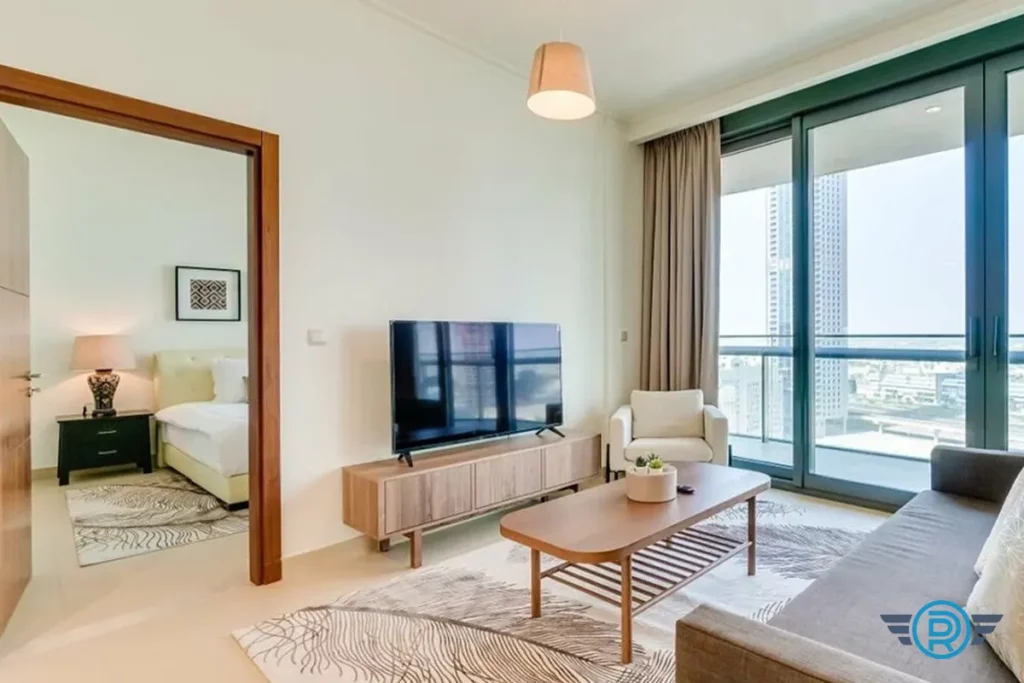
Different ways to find an apartment in Dubai
Finding a house in Dubai can be done through several different methods, depending on your needs and circumstances. Here are some common methods for finding a house in Dubai:
Online Websites
This method is one of the quickest and easiest ways to search for a home. There are various websites available for searching for houses in Dubai, allowing you to filter rental or for-sale properties based on area, price, property type, and different features. Some of these websites include:
- Property Finder (propertyfinder.ae)
- Bayut (bayut.com)
- Dubizzle (dubizzle.com)
- JustProperty (justproperty.com)
These websites usually offer detailed and up-to-date information about available properties in Dubai.
Real Estate Agencies
- If you want to search for a home in person with professional help, real estate agencies are a good option. They can introduce properties that match your needs and assist you in the negotiation and contract process. Some well-known real estate agencies in Dubai include:
- Betterhomes
- Allsopp & Allsopp
- Engel & Völkers
- Asteco
Online Groups and Social Networks
On social networks like Facebook and Telegram, there are groups and channels where users can advertise their properties or search for homes. This method can be particularly useful if you are looking to find a home at a more affordable price.
Local Markets and Property Exhibitions
In Dubai, property exhibitions are regularly held where individuals can meet with developers, real estate agencies, and others in the real estate industry. These exhibitions are a good opportunity to compare prices and get up-to-date information about new projects.
Visiting Residential Complexes and Towers
Many towers and residential complexes in Dubai, especially in popular areas like Dubai Marina, Jumeirah Lake Towers, and Downtown Dubai, may advertise vacant units themselves. Sometimes, you can contact the building managers or rental units directly.
Newspaper and Print Advertisements
Although this method is older, some local newspapers and magazines, like Khaleej Times or Gulf News, have sections for property ads. This method is useful for those who prefer to use print media.
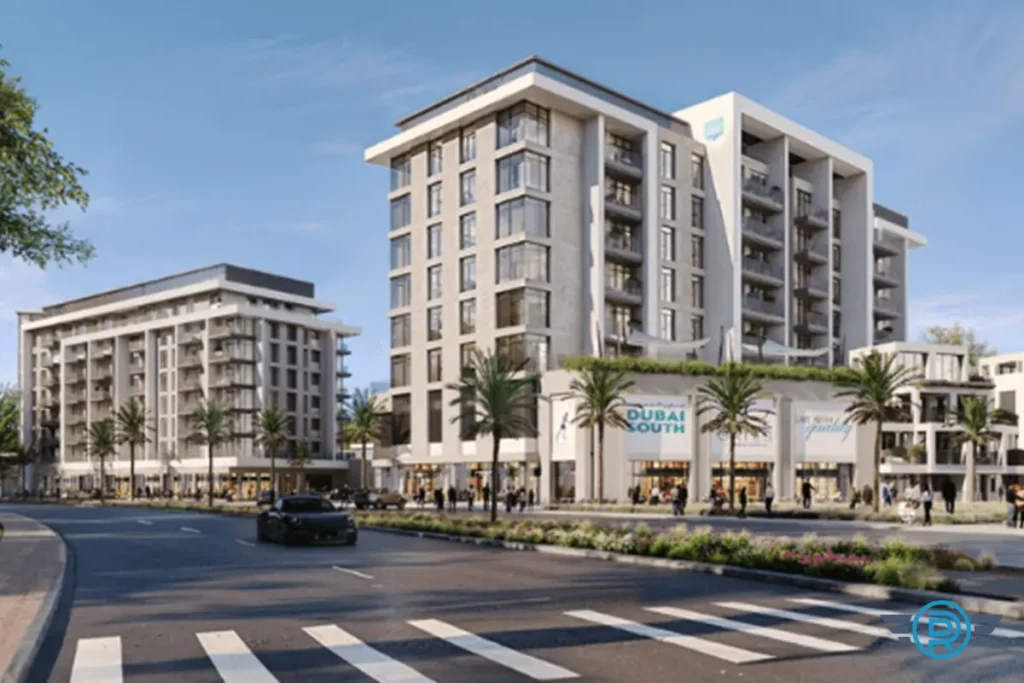
Apartment rental prices in Dubai
Renting an Apartment in Dubai depends on various factors, including location, apartment type, amenities, unit size, and demand in the area. Due to the large population and the city’s appeal for tourism and business, the apartment rental market in Dubai is highly volatile and variable.
Renting an Apartment Based on Location
In Dubai, prices vary significantly based on the area. Some luxury and prominent areas usually have higher rental costs.
- Dubai Marina
This area is one of the most popular and expensive in Dubai. The rent for a one-bedroom apartment typically ranges between AED 70,000 to AED 100,000 per year, while larger and more luxurious apartments can cost up to AED 200,000 or more.
- Downtown Dubai
The commercial and tourist center of Dubai, where the Burj Khalifa is located. Rent for a one-bedroom apartment in this area typically ranges from AED 80,000 to AED 120,000 per year.
- Jumeirah Lake Towers (JLT)
This area is also known as one of the popular residential zones in Dubai. The rent for a one-bedroom apartment typically ranges from AED 65,000 to AED 90,000 per year.
- Palm Jumeirah
A luxurious and beautiful area where prices are generally high. Rent for a one-bedroom apartment can range from AED 90,000 to AED 150,000 per year, depending on the amenities and specific location.
- Business Bay Towers
Known as the business hub of Dubai, this area has recently attracted a lot of tenants. Rent for a one-bedroom apartment in Business Bay typically ranges from AED 75,000 to AED 100,000 per year.
- Al Barsha
This area is known for its more affordable prices, making it a good option for those who want to live in Dubai but are not looking for more expensive areas. Rent for a one-bedroom apartment in Al Barsha typically ranges from AED 45,000 to AED 70,000 per year.
- Deira & Bur Dubai
These are older areas of Dubai where prices are generally lower compared to newer districts. Rent for a one-bedroom apartment in these areas can range from AED 35,000 to AED 55,000 per year.
Renting an Apartment Based on Number of Bedrooms
- One-Bedroom: Rent for a one-bedroom apartment typically starts from AED 35,000 (for cheaper areas like Deira) and can go up to AED 120,000 (in luxury areas like Downtown Dubai).
- Two-Bedroom: Rent for a two-bedroom apartment can range from AED 55,000 to AED 180,000 per year, depending on the area and amenities.
- Three-Bedroom: For three-bedroom apartments in exclusive areas like Palm Jumeirah or Dubai Marina, the rent typically ranges from AED 100,000 to AED 250,000 per year.
Factors Influencing Rental Prices
- Amenities: Apartments with extra amenities like swimming pools, gyms, or dedicated parking spaces generally come at a higher price.
- Location: Apartments near metro stations, business centers, and entertainment spots are usually more expensive.
- Property Type: Luxury, new apartments, or those with unique designs and beautiful views usually have higher rental prices.
- Rental Period: Annual contracts are typically cheaper than monthly rental agreements.
Important Notes for Renting an Apartment in Dubai
- Contract Terms: Most rental contracts in Dubai are annual, and tenants are generally required to pay the rent upfront (either in one lump sum or three installments).
- Additional Costs: In addition to rent, there may be maintenance fees, utilities (water and electricity), and agency fees (if using an agency’s services).
- Initial Payments: In many cases, the landlord or agency may require security cheques or a deposit in addition to the upfront rent payment.
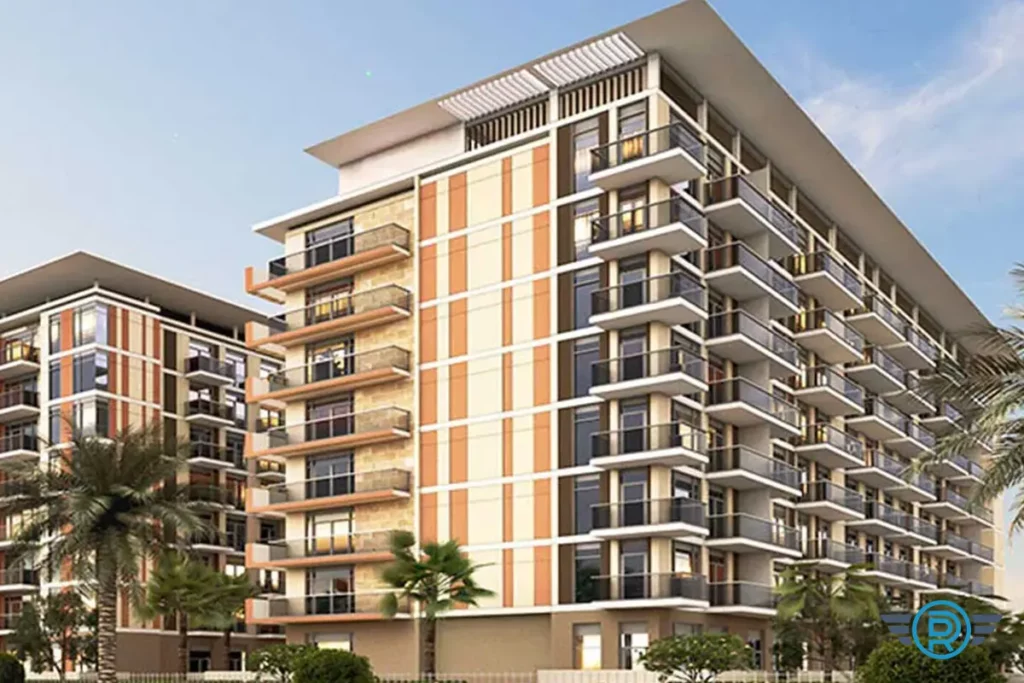
Cheap suite rental prices in Dubai
Renting affordable suites in Dubai generally depends on the area, type of building, and available amenities. As a large and advanced city, Dubai offers varying rental prices, but there are still areas where affordable suites can be found. Typically, the rent for an affordable one-bedroom suite in areas like Deira, Bur Dubai, Al Qusais, and International City can range between AED 25,000 to AED 55,000 per year. These areas are good options for those seeking affordable housing in Dubai, as they offer lower rental costs while still providing easy access to public transportation and everyday amenities.
Specifically, in Deira and Bur Dubai, which are among the oldest areas in Dubai, more affordable suites can be found compared to newer, more luxurious areas like Downtown Dubai or Palm Jumeirah. Additionally, the International City area, known for its diverse residential projects and affordable structure, offers one-bedroom suites starting from around AED 25,000. In these areas, rent for suites is typically paid annually, although additional costs like utilities (water and electricity) and maintenance fees should also be considered. To find the best deals, using reliable real estate websites like Property Finder or Bayut can be helpful.
Payment methods for apartment rent in Dubai
In Dubai, rental payment methods for apartments are generally different from many other countries, and this can vary depending on the landlord and the rental agreement. Typically, tenants are required to pay the rent before the start of the contract and throughout the rental period. Below are the common rental payment methods in Dubai:
1. Annual Payment (Lump Sum)
One of the most common rental payment methods in Dubai is paying the full year’s rent upfront in one lump sum. In this case, the tenant is required to pay the entire annual rent amount at the beginning of the lease. This method is often cheaper for many tenants, and in some cases, landlords may offer discounts for lump-sum payments.
2. Installment Payments (Multiple Installments)
In Dubai, most landlords allow rental payments to be made in installments. The most common installment method is paying rent in 4 installments for a one-year lease. The tenant usually pays 25% of the rent at the start and then the remaining amount in three equal installments over the next three months. Some landlords may even allow monthly payments, although this method is somewhat less common than the four-installment approach.
3. Post-Dated Checks
In Dubai, landlords typically require tenants to provide a set number of post-dated checks for each rent installment. These checks are dated for specific times and serve as a guarantee for rent payment throughout the contract period. Landlords generally require 4 post-dated checks for quarterly payments or 12 checks for monthly payments. These checks must be issued from the tenant’s bank account, and if the payment is not made on time, the landlord can cash the checks to collect the rent amount.
4. Bank Transfer Payments
Many landlords and real estate agencies in Dubai prefer that tenants pay rent through a bank transfer to the landlord’s or agency’s account. This method is often used for both lump-sum and installment payments and is considered one of the easiest and safest ways to make payments. In some cases, online or mobile transfers may also be accepted as a payment method.
5. Credit Card Payments
In some cases, certain landlords and real estate agencies may accept rent payments via credit card, allowing tenants to pay their rent in installments through their credit cards. However, this method often incurs additional fees, and not all landlords accept it.
6. Ejari System Payments
In Dubai, the Ejari system is an official rental contract registration system implemented by the Dubai government to ensure transparency and legality of rental transactions. Through this system, tenants can register and validate their rental payments. While Ejari is not directly used for rent payments, registering a rental contract in this system is mandatory for many landlords and tenants.
7. Special Offers (Discounts and Promotions)
Sometimes, landlords and real estate agencies offer discounts for certain payment methods or advance payments. For example, a landlord may offer discounts for tenants who pay the rent in full upfront, such as reducing the rent for a few months. Additionally, some developers and projects offer tenants discounts for long-term contracts or lease renewals.

Documents required to rent a house in Dubai
Renting an Apartment in Dubai, certain documents are required to ensure the rental process is conducted officially and legally. These documents may vary slightly depending on the landlord or real estate agency, but generally, the following documents are necessary for renting an apartment in Dubai:
- Valid Passport: The tenant must have a valid passport with at least six months of validity from the date of arrival in Dubai. This document is essential for verifying identity and legal status.
- Dubai Residency Visa (or Work Visa): Having a Dubai residency visa is mandatory for foreign nationals. This visa indicates that the tenant is legally residing in Dubai. If you have a work, student, or any other type of visa, you will need to provide a copy of it to the agency or landlord.
- Emirates ID Copy: If you are residing in Dubai, having an Emirates ID is essential for tenants. This card is used for registration and establishing identity within government systems and for rental processes.
- Income Certificate or Employment Documents: To ensure the tenant’s financial ability, an income certificate or employment documents are typically required. These documents often include a payslip or a letter from the employer confirming that the tenant has the financial means to pay the rent.
- Bank Statement: Some landlords or real estate agencies may ask tenants to provide their bank statements from the past three or six months to verify their financial status and ability to pay the rent.
- Post-Dated Checks: Landlords generally require tenants to provide post-dated checks for rent payment. These checks should have different dates for each installment. The checks must be issued from the tenant’s bank account.
- Personal Photograph: You may need to provide a personal photograph, especially if you are using an agency or governmental services such as Ejari for the contract registration process.
- Health Certificate (in specific cases): In certain cases, particularly for those who have recently arrived in Dubai, a health certificate may be required to prove the tenant does not have contagious diseases.
- Current Address: If you have previously lived in Dubai, you may be asked to provide your current address as part of the rental process. This is often necessary for registration in official systems and legal rental procedures.
- Advance Payment (if required): In some cases, you may be asked to make an advance payment before signing the rental contract. This advance payment may include an amount equivalent to one of the rental installments.

Essential tips when visiting a home
Visiting a house or apartment before renting or purchasing is a very important step that can have a significant impact on your living experience. Here are some essential tips for inspecting the house to ensure that your choice is suitable and problem-free:
1. Check the Physical Condition of the House
- Walls and Ceilings: Pay attention to cracks, dampness, or water stains on the walls and ceilings. These could indicate structural issues or moisture problems inside the building.
- Windows and Doors: Check if the windows and doors open and close easily, and whether there are any issues with insulation that might cause air or water leakage.
- Elevator and Building Entrance: If the house is located on higher floors, check the condition of the elevator and building entrance to ensure safety and proper functioning.
2. Inspect the House’s Utilities and Systems
- Water and Electricity: Make sure the water and electricity systems are functioning properly. Turn the faucets on and off, check the water pressure, and confirm that electricity is working throughout the house.
- Heating and Cooling: If you’re visiting during hot or cold seasons, ensure that the air conditioning (AC) or heating systems are working properly.
3. Check Safety and Security
- Security Systems: Look for security measures such as CCTV cameras, alarm systems, and secure locks on doors and windows. These should be in good condition to ensure the safety of the house.
- Emergency Exits: Check that emergency exits are clear and accessible in case of incidents like fires.
4. Examine Public Services and Amenities
- Parking and Public Spaces: If the apartment or house requires parking, ensure there is enough parking space near the house. Also, check if public spaces like hallways, elevators, and swimming pools are well-maintained.
- Appliances and Equipment: If the house comes with appliances like a refrigerator, stove, or washing machine, make sure they are all working properly.
5. Consider Additional Costs
- Maintenance and Management Fees: Ask about additional costs such as maintenance fees, and the costs for water, electricity, and gas, so you are aware of any hidden expenses.
- Parking Fees: If there is a separate parking facility, check the associated costs.
6. Examine the Neighborhood and Surroundings
- Access to Public Transport: Check the proximity to metro stations, bus stops, or any other public transportation options.
- Proximity to Essential Services: Ensure that the house is close to shopping centers, hospitals, schools, and other essential services.
- Noise Level: Pay attention to the noise level in the area. Houses located near highways or busy areas might experience a lot of noise, which could become uncomfortable over time.
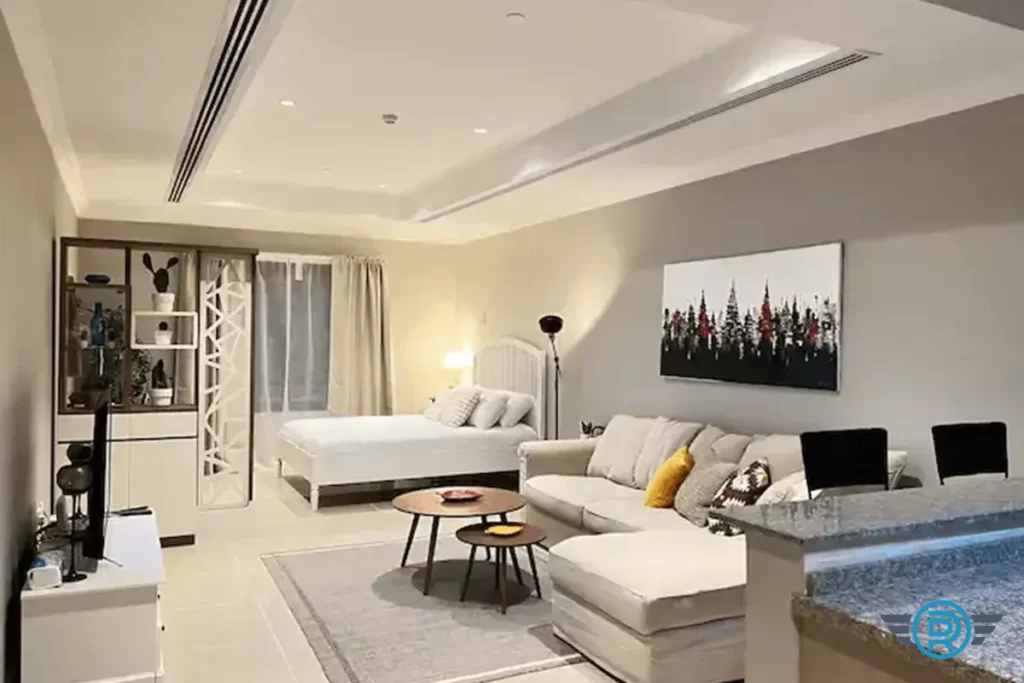
7. Meet the Neighbors
If possible, talk to the neighbors to get a sense of what living in the building or neighborhood is like. They can provide useful insights on security, convenience, and potential problems within the building or area.
8. Compare with Other Options
Before making your final decision, it’s advisable to visit other houses as well to make comparisons and choose the best option.
9. Carefully Review the Contract
After visiting the house and making your choice, thoroughly review the rental or purchase contract. Ensure that all terms related to rent, costs, duration, and maintenance conditions are clearly and accurately outlined.
House rental apps in Dubai
In Dubai, there are various apps available that can help you search for and find the right property to rent. These apps allow you to search for properties with different prices, sizes, and locations using various filters. Here are some reliable apps for renting an apartment in Dubai:
- Bayut
- Property Finder
- Dubizzle
- JustProperty
- Zillow
- WealthyLiving
- Brokers

final word
This article has covered important and practical points regarding renting an apartment in Dubai. To rent an apartment in Dubai, it’s essential to be aware of various search and payment methods and to accurately provide the required documents. Since Dubai is a vibrant and expensive city, using reliable apps and websites for property searches can significantly assist you. Additionally, when visiting a property, paying attention to the physical details, facilities, and safety conditions is crucial.
By using reputable apps such as Bayut, Property Finder, and Dubizzle, you can easily review and compare various rental options. Along with that, you should also consider the physical condition of the property, the facilities, and any additional costs to make the best decision. Ultimately, by gathering the necessary documents, utilizing online tools, and thoroughly reviewing contract terms, you can have a smooth and successful rental experience in Dubai.




































 Rolls Royce
Rolls Royce Lexus
Lexus Lamborghini
Lamborghini Porsche
Porsche Ferrari
Ferrari Toyota
Toyota Mercedes Benz
Mercedes Benz BMW
BMW Land Rover
Land Rover Bentley
Bentley Nissan
Nissan Cadillac
Cadillac Audi
Audi Chevrolet
Chevrolet GMC
GMC Hyundai
Hyundai Kia
Kia Mazda
Mazda